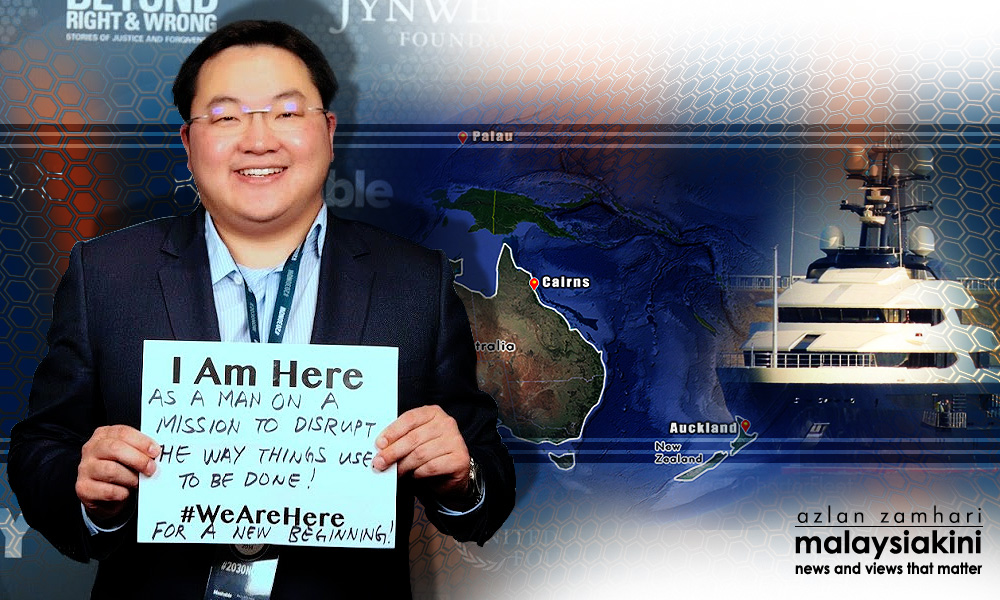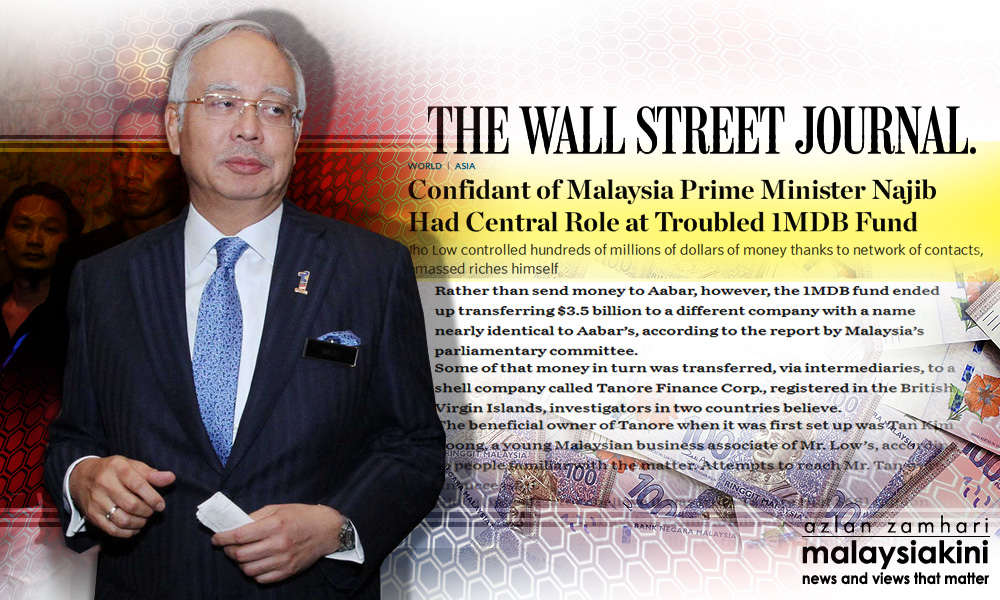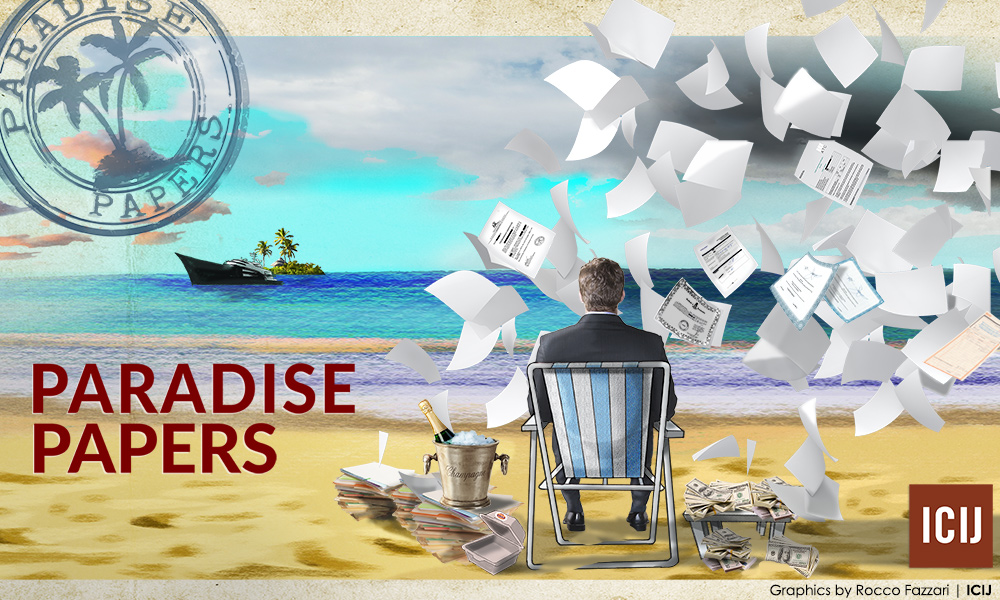
A cache of leaked correspondences has revealed that billionaire financier Low Taek Jho feared allegations against him related to the 1MDB scandal would result in his extradition back to Malaysia.
In an email dated Aug 10, 2015, Low’s UK-based lawyer Demelza Hassani contacted offshore law firm Appleby’s Cayman Islands office to inquire about extradition laws in the Cayman Islands and the British Virgin Islands (BVI).
“Mr Low has recently been the subject of allegations of financial wrongdoing in Malaysia.
“Given the nature of the allegations being made in Malaysia, Mr Low is concerned about his global exposure and is seeking expert advice on international law (including mutual legal assistance requests and/or global restraint orders),” Hassani wrote in the email.
The email was sent just a month after the Wall Street Journal (WSJ) published an exposé which directly implicate Prime Minister Najib Abdul Razak in the 1MDB scandal, along with his associate Low.
It reported that money misappropriated from 1MDB had been allegedly used to fund BN’s election campaign in 2013, and RM2.6 billion of the funds had turned up in the premier’s personal bank account.
Some of the funds were purportedly channelled through accounts controlled by Low.
Low, who is popularly known by his moniker Jho Low, has consistently denied wrongdoing over the 1MDB scandal, and has attempted to paint the allegations as being “politically motivated”.
He has said that his involvement was only limited to setting up the Terengganu Investment Authority (TIA) in 2008, which later evolved into 1MDB.

Like Low, Najib has also consistently denied wrongdoing, with attorney-general Mohamed Apandi Ali clearing him of all charges last year.
Meanwhile in another email dated Aug 11, 2015, Hassani gave a list of specific questions to Appleby’s lawyers.
“We are seeking advice in the event that the Malaysian authorities request the Cayman/BVI authorities to initiate extradition proceedings. Specifically we would like advice on the position if a warrant for our client’s arrest were to be issued or an Interpol red notice issued during his stay.
“We would like to gauge whether Cayman/BVI would be considered a relatively safe place to travel to in the foreseeable future or whether you would advise the client to avoid entering the jurisdiction.
“It would be useful to understand more generally the appetite in Cayman/BVI to extradite, particularly in the circumstances of politically motivated financial allegations,” she said.
Hassani also enquired whether the Cayman Islands and the BVI had any bilateral or multilateral extradition treaties, and if so, what they might entail.
In case there were no such treaties, she asked whether the two jurisdictions had ever extradited anyone on an informal, ad hoc basis.
The Paradise Papers
The emails are part of a trove of 13.4 million records that were obtained by German newspaper Süddeutsche Zeitung and shared with the International Consortium of Investigative Journalists (ICIJ) and a network of over 380 journalists from 67 countries, including Malaysiakini.
Dubbed the “Paradise Papers”, these records come from the offshore service firms Appleby and Asiaciti, as well as 19 corporate registries including Labuan.

The most extensive of these records are those from Appleby, whose clients include over 650 individuals and organisations with Malaysian addresses.
However, this only puts Malaysian clients as the 25th largest national group of clients, and pales in comparison to over 31,000 clients in the US, over 14,000 in the UK, and over 12,000 in Bermuda.
The Süddeutsche Zeitung, the ICIJ, and its partners had previously published a similar exposé dubbed the “Panama Papers” last year, based on leaked documents from the Panama-based law firm Mossack Fonseca.
Based on the Paradise Papers, Appleby’s compliance department had given the green light to deal with Low. However, it is unclear what advice he was provided with, if any.
Malaysiakini contacted both Hassani and Appleby for comment on Oct 19 and has yet to receive a response from either of them.
However, on Oct 24, Appleby released a statement decrying the media’s potential use of material that may have been obtained illegally. The law firm said that this could possibly expose innocent parties to data protection breaches.
It added that there had been no evidence of wrongdoing either by the law firm or its clients.
Extradition provisions
Both the Cayman Islands and the BVI are British Overseas Territories, and their foreign affairs are handled by the Foreign and Commonwealth Office in London on their behalf.
Malaysia and the UK do not have a bilateral extradition treaty. There is instead a 2010 mutual legal assistance treaty, but this has not been extended to include either the Cayman Islands or the BVI.
In terms of multilateral treaties, the United Nations Convention against Transnational Organised Crime (UNTOC) is applicable to Malaysia, the Cayman Islands, and the BVI. It contains provisions on extradition.
Additionally, the United Nations Convention against Corruption (UNCAC), which also has provisions to facilitate extradition, is applicable to these jurisdictions apart from the Cayman Islands.
Previously on Oct 23, Deputy Prime Minister Ahmad Zahid Hamidi had denied reports that Malaysia had sought Interpol’s assistance to locate Low.
He said that there was no case to charge Low, and the case had since been closed. Interpol had declined to comment.
Despite this, assets allegedly controlled by Low have been targeted for civil forfeiture under the US’ Kleptocracy Asset Recovery Initiative since last year.
These include a private jet, the superyacht “Equanimity”, and a slew of real estate properties. The US Department of Justice alleges that these assets were purchased with RM4.5 billion worth of funds misappropriated from 1MDB which had been channelled through the US financial system.
Low has denounced the lawsuits as inappropriate and deeply flawed.- Mkini


No comments:
Post a Comment
Note: Only a member of this blog may post a comment.